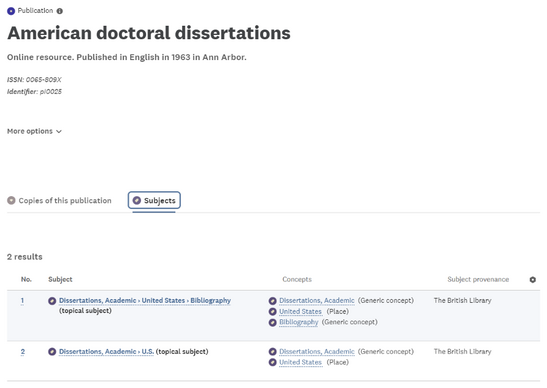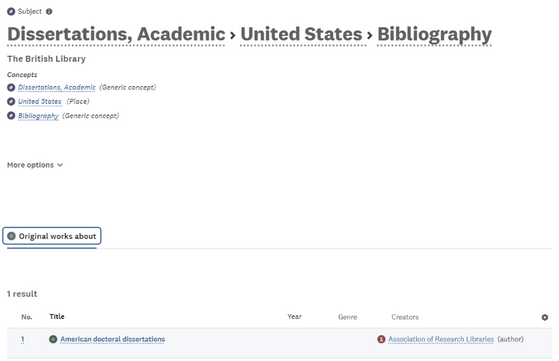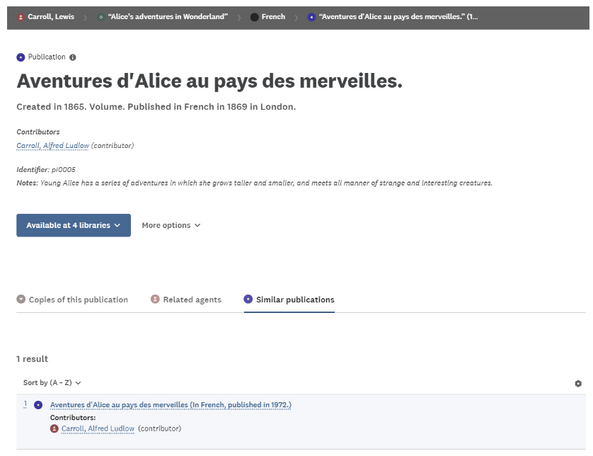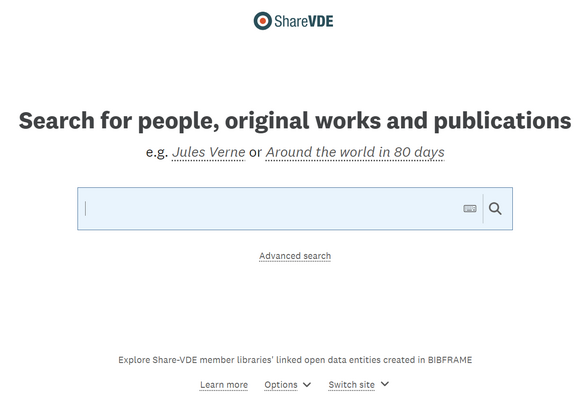mNo edit summary |
mNo edit summary |
||
| Line 49: | Line 49: | ||
Data update processes handle ongoing updates (“delta updates” in Share Family jargon), to enable periodic imports of MARC records for continuous update of system data. By “Delta” updates we mean the changes that occur to the library records that are periodically pushed to the LOD Platform, to be published on the discovery portal. The automation of the ingestion in the LOD Platform of updated library records has the purpose of regularly updating the data available through the discovery interface and the other endpoints of the workflow where the data are available. This means updating the data of the clustered entities and the related resources searchable on the discovery interface and in the triplestore, according to the frequency requested by the library. | Data update processes handle ongoing updates (“delta updates” in Share Family jargon), to enable periodic imports of MARC records for continuous update of system data. By “Delta” updates we mean the changes that occur to the library records that are periodically pushed to the LOD Platform, to be published on the discovery portal. The automation of the ingestion in the LOD Platform of updated library records has the purpose of regularly updating the data available through the discovery interface and the other endpoints of the workflow where the data are available. This means updating the data of the clustered entities and the related resources searchable on the discovery interface and in the triplestore, according to the frequency requested by the library. | ||
| Line 54: | Line 55: | ||
The RDFizer module that automates the entire process of converting and publishing data in RDF-based BIBFRAME descriptions has implemented conversion for additional MARC21 bibliographic tags and subfields to be compliant with the mapping and conversion rules published by the Library of Congress (version 2.4). As mentioned in [https://wiki.share-vde.org/wiki/ShareFamily:NewsAndUpdates/December2023#Granularization_of_the_Cluster_Knowledge_Base_and_new_conversion_model previous updates], the work is proceeding for creating a finer granularity level in the CKB: all MARC and UNIMARC fields and subfields have been mapped, which will also support the implementations related to Linked Data Fragments (see below). | The RDFizer module that automates the entire process of converting and publishing data in RDF-based BIBFRAME descriptions has implemented conversion for additional MARC21 bibliographic tags and subfields to be compliant with the mapping and conversion rules published by the Library of Congress (version 2.4). As mentioned in [https://wiki.share-vde.org/wiki/ShareFamily:NewsAndUpdates/December2023#Granularization_of_the_Cluster_Knowledge_Base_and_new_conversion_model previous updates], the work is proceeding for creating a finer granularity level in the CKB: all MARC and UNIMARC fields and subfields have been mapped, which will also support the implementations related to Linked Data Fragments (see below). | ||
| Line 64: | Line 66: | ||
* slides: https://bit.ly/SVDE_Workshop2024_slides | * slides: https://bit.ly/SVDE_Workshop2024_slides | ||
* recording: https://www.youtube.com/live/8xBeGB3Npls?t=4071s | * recording: https://www.youtube.com/live/8xBeGB3Npls?t=4071s | ||
| Line 74: | Line 77: | ||
* slides: https://bit.ly/SVDE_Workshop2024_slides | * slides: https://bit.ly/SVDE_Workshop2024_slides | ||
* recording: https://www.youtube.com/live/8xBeGB3Npls?t=3504s | * recording: https://www.youtube.com/live/8xBeGB3Npls?t=3504s | ||
| Line 103: | Line 107: | ||
Clicking on the concepts, a basic version of the Concept page is displayed. | Clicking on the concepts, a basic version of the Concept page is displayed. | ||
| Line 109: | Line 114: | ||
A new tab on the Publication page showing similar Publications in the same language. We are analysing the algorithm to create similar publications to extend its scope to broader similarity criteria. | A new tab on the Publication page showing similar Publications in the same language. We are analysing the algorithm to create similar publications to extend its scope to broader similarity criteria. | ||
[[File:Similar publications.png|thumb|593x593px|none]] | [[File:Similar publications.png|thumb|593x593px|none]] | ||
| Line 114: | Line 120: | ||
As part of the UX/UI working group's activities, it was decided to switch to sans-serif fonts for a modern look and feel. Additionally, elements on the homepage of https://www.natbib-lod.org/ have been resized to create a more harmonious and visually appealing design. | As part of the UX/UI working group's activities, it was decided to switch to sans-serif fonts for a modern look and feel. Additionally, elements on the homepage of https://www.natbib-lod.org/ have been resized to create a more harmonious and visually appealing design. | ||
| Line 151: | Line 158: | ||
== Information resources == | == Information resources == | ||
To facilitate the continuous exchange of ideas and principles that collectively define the vision, aims, and progress of Share Family environments and their tools, new materials and accompanying documents have been created to guide member institutions through this process. By utilizing shared materials and documents, member institutions can seamlessly integrate into the Share Family, actively participate in collaborative initiatives, and contribute to the ongoing development and success of the endeavor. | To facilitate the continuous exchange of ideas and principles that collectively define the vision, aims, and progress of Share Family environments and their tools, new materials and accompanying documents have been created to guide member institutions through this process. By utilizing shared materials and documents, member institutions can seamlessly integrate into the Share Family, actively participate in collaborative initiatives, and contribute to the ongoing development and success of the endeavor. | ||
=== Dissemination channels === | |||
==== Website [http://www.share-family.org www.share-family.org] ==== | |||
The primary channel for staying up to date with our project is the Share Family website, [http://www.share-family.org www.share-family.org]. This digital hub connects our community and serves as a window into the heart of the Share Family initiative, offering a comprehensive overview of our mission, values, goals, and technology. Additionally, the website is a dynamic platform for staying informed about our latest activities, events, and advancements. | |||
==== YouTube channel ==== | |||
Check out the Share Family’s new YouTube channel at https://www.youtube.com/@Share_Family. | |||
Subscribe to keep up to date with our presentations and events, access informative materials and more! | |||
Our latest videos: | |||
* Share Family Workshop at 2024 ALA Annual: https://www.youtube.com/live/8xBeGB3Npls | |||
* Brand new series of informative videos about the Share Family “Share Family: Linked Data for Libraries, by Libraries” https://www.youtube.com/playlist?list=PLByj3df0D9a3r75rVYgjxb1Yr4UM4gby4 | |||
Revision as of 09:11, 31 July 2024
This section includes the latest issue of the Share Family Bulletin. More information on the current activities going on within the various branches of the Share Family can be found throughout this wiki website https://wiki.svde.org/, which is the informative hub of Share-VDE and the Share Family.
For a general presentation of the Share Family, of its mission and values, and to find out the latest news, you can also explore the brochure website https://www.share-family.org/.
To explore previous issues of the Share Family Bulletin, feel free to navigate through the following links:
- Number 1, December 2019
- Number 2, November 2020
- Number 3, October 2021
- Number 4, January 2022
- Number 5, May 2022
- Number 6, September 2022
- Number 7, January 2023
- Number 8, December 2023
Number 9, July 2024
You can download a printable version at BITLY
Citation: Share Family Team, Share Family Bulletin 9 (July 2024), BITLY
Introduction
The Share Family progress continues, with ongoing efforts dedicated to advancing the LOD Platform technology into production workflows, enhancing system components, and transitioning to the new version 3 of our application.
Version 3.0.0 release and LOD Platform developments
First of all, we're very excited to announce the major release of the 3.0.0 version of our software! You can find the release notes here: https://wiki.share-vde.org/wiki/ShareDoc:PublicDocumentation/Release_notes.
This is a major release that introduces many changes in the software and in data processing algorithms. The new version of the Share Family LOD Platform technology framework will be installed in the various environments of Share Family tenants over the next period.
The release encompasses the following components of the LOD Platform: Cluster Management Module (which manages the clusters of entities that feed the CKB - Cluster Knowledge Base, also called Entity Knowledge Base), API layer, Front-end module, RDBMS (database), RDFizer (BIBFRAME / RDF conversion module). Being a major release, several important features and new components have been added to the system, ie. Delta processes, UNIMARC services and JCricket entity editor, the platform’s shared cataloguing tool. This release addresses both bug fixes as well as new developments and enhancements.
The software versions released over time are shared across all layers of Share Family initiative’s technology. For an overview of the software versions installed on the different environments, see Share Family AWS environments summary.
The summary below describes some of the major and most relevant features, with a high-level mention. Further information on descriptive tasks corresponding to implementations can be found in the release notes.
JCricket Entity Editor
JCricket is the tool for collaborative linked data entity management and shared cataloguing. It enables - according to the BIBFRAME ontology - the entity curation (e.g. creation of new entities, entity modification, the application of entity merge and split functions). The scope is to improve the quality of the Entity Knowledge Base, a source of living data produced through clustering and ongoing update processes. JCricket is a manual application that makes it possible to manage bibliographic data in the form of entities. It empowers professional librarians to enhance the quality of machine-generated data output of MARC to BIBFRAME transformation. Its optimal application is within a large data pool formed through contributions from multiple libraries, such as Share-VDE; therefore, it does not impact original data that reside in member libraries’ systems, unless libraries want to use ad hoc APIs for entity updates both in SVDE and in their local systems, which is also an option.
Initially, Share members are currently testing JCricket under controlled conditions. You can explore more of JCricket in the Public Documentation section of the Share Family wiki at https://wiki.share-vde.org/wiki/ShareDoc:PublicDocumentation/LODPlatform/EntityEditor and check out Tiziana Possemato’s demo of JCricket entity editor at the 2024 Share Family Workshop: https://www.youtube.com/live/8xBeGB3Npls.
Data management
Fine-tuning of data update procedures
Data update processes handle ongoing updates (“delta updates” in Share Family jargon), to enable periodic imports of MARC records for continuous update of system data. By “Delta” updates we mean the changes that occur to the library records that are periodically pushed to the LOD Platform, to be published on the discovery portal. The automation of the ingestion in the LOD Platform of updated library records has the purpose of regularly updating the data available through the discovery interface and the other endpoints of the workflow where the data are available. This means updating the data of the clustered entities and the related resources searchable on the discovery interface and in the triplestore, according to the frequency requested by the library.
RDFizer
The RDFizer module that automates the entire process of converting and publishing data in RDF-based BIBFRAME descriptions has implemented conversion for additional MARC21 bibliographic tags and subfields to be compliant with the mapping and conversion rules published by the Library of Congress (version 2.4). As mentioned in previous updates, the work is proceeding for creating a finer granularity level in the CKB: all MARC and UNIMARC fields and subfields have been mapped, which will also support the implementations related to Linked Data Fragments (see below).
Linked Data Fragments
We are experimenting with a new approach for publishing linked data descriptions in various serialization formats. In big data-driven environments, accessing, querying, and processing vast datasets efficiently is challenging. Linked Data Fragments (LDF) have emerged as a promising paradigm to address these challenges by providing a distributed and scalable approach for publishing and serving Linked Data. As part of this initial investigation, we developed a set of Web APIs that adopt Linked Data Fragments and provide the following benefits: real-time RDF generation and publication, on-demand ontology mapping, and multi-provenance management.
More will be shared as soon as the proof of concept will be available. In the meantime, access Andrea Gazzarini’s presentation about Linked Data Fragments titled Real-Time “RDFization” - How to provide instant Semantic Graphs without any RDF storage at the 2024 Share Family Workshop:
- slides: https://bit.ly/SVDE_Workshop2024_slides
- recording: https://www.youtube.com/live/8xBeGB3Npls?t=4071s
UNIMARC
Numerous advancements were implemented based on direct mapping between UNIMARC and BIBFRAME. The UNIMARC services development stems from the SHARE Catalogue project and the Italian libraries affiliated to this platform, but it can benefit all institutions adopting UNIMARC. These libraries are involved in a specific project related to the direct management of UNIMARC records in clusterization and reconciliation processes without the “middle step conversion” from UNIMARC to MARC21. All related developments are finalized to allow the migration of the SHARE Catalogue platform to the new CKB infrastructure, according to the above-mentioned approach. This work will be shared with the linked data community through a Wikibase instance https://unimarc2bibframe.wikibase.cloud/ that will be enriched and documented.
To learn more about this topic, you can check out The SHARE Catalogue: UNIMARC-BIBFRAME Mapping - An Evolving Path, presented by Claudio Forziati at the 2024 Share Family Workshop.
- slides: https://bit.ly/SVDE_Workshop2024_slides
- recording: https://www.youtube.com/live/8xBeGB3Npls?t=3504s
Clusterization processes
For further details on improvements on the Share Family’s clusterization processes, delve into this version’s release notes on the Share Family wiki at ShareDoc:PublicDocumentation/Release notes.
Third parties integration
New data workflows are being analysed to support the use of the LOD Platform technology even outside of the Share Family environment, for the integration with ILS / LSP. We are considering several scenarios where the Share linked data system can simultaneously or alternatively operate on local library systems using libraries’ own tools, and share and cooperatively edit linked data resources across different environments using the JCricket entity editor.
The integration with environments and tools like FOLIO, Sinopia and WeCat is proceeding, and a use case for the integration of JCricket and FOLIO will be presented at future conferences this year. A first look at the integration between Share Family technologies and FOLIO was recently presented by Sebastian Hammer and Boaz Nadav Manes at the 2024 Share Family Workshop, in a session named FOLIO and Lehigh University Pilot.
- slides: https://bit.ly/SVDE_Workshop2024_slides
- recording: https://www.youtube.com/live/8xBeGB3Npls?t=1369s
Front-end enhancements
Subjects and Concepts
We have made improvements to the previous version of Subjects and Concepts display. The concept types implemented in the backend include: Date, Event, Family, Form, Format, Generic Concept, Genre, Language, Meeting, Opus, Organization, Person, Place, Topic. They are returned on the front-end with a basic set of data and relationships with the works connected with the subject.
The Subject tab in the Publication page shows the list of subject string and the concepts derived from it:
By clicking on a subject string, users can see a list of works related to that subject, as well as how the subject string is connected to the concepts it comprises.
Clicking on the concepts, a basic version of the Concept page is displayed.
Similar Publications tab
A new tab on the Publication page showing similar Publications in the same language. We are analysing the algorithm to create similar publications to extend its scope to broader similarity criteria.
Small revamping to look and feel
As part of the UX/UI working group's activities, it was decided to switch to sans-serif fonts for a modern look and feel. Additionally, elements on the homepage of https://www.natbib-lod.org/ have been resized to create a more harmonious and visually appealing design.
Portal switch mechanism
A new Switch site button has been added at the bottom of svde.org portal group and skin / institutional portals homepages internal pages (see definitions of portal groups and skin portals). This button opens a menu where users can select through which portal they want to explore. The aim is to connect portal groups with the related skin portal, so that end users have an immediate overview of what individual skin portals are connected to a portal group.
Overall, the majority of fixes and enhancements extend to rectifying data retrieval errors and fine-tuning data retrieval errors, culminating in a more uniform and seamless user interaction with the system. Across the board, these efforts work cohesively to bolster the system's intuitiveness and reliability, facilitating smoother navigation and ensuring precise data representation.
The Share Family is committed to fostering cooperation among its member institutions to showcase the immense value of being part of an initiative developed and driven by libraries for libraries.
Ongoing conversations with consortia representatives are underway to define the configurations of this innovative collaboration.
As an example of this effort, the Share Family Executive Summary for Consortia offers additional insights into how the Share Family can assist consortia in transitioning to linked open data, providing valuable strategies and support. Approved by our Advisory Council, the document emphasizes Share Family’s pivotal role in aiding consortia in adopting linked data methodologies for enhanced collaboration. The Share Family aims to empower consortia with the tools and knowledge necessary to seamlessly integrate linked open data principles, fostering innovation and interoperability within consortia networks.
Working Groups are the backbone of Share Family activities, which are driven by input from member institutions in a joint effort with Share Staff.
Important tasks are being carried on to support the complete shaping of the SVDE Ontology within the Sapientia Entity Identification group: at the time of writing, the definition of the Opus type individuals is being consolidated (ie. the addition to the ontology of the definitions of the various types of Opus, ie. abstract works and resources that the entity model can support). These additions will be reflected by both the general search and discovery portal, as well as in JCricket Entity Editor.
More on the work carried out on the Opus types was shared by Nancy Lorimer at the 2024 Share Family Workshop in her SVDE Ontology - Update July 2024.
- slides: https://bit.ly/SVDE_Workshop2024_slides
- recording: https://www.youtube.com/live/8xBeGB3Npls?t=2640s
The User Experience – User Interface Working Group cooperating with the National Bibliographies Working Group has analyzed the front-end layer of the entity discovery portals according to a set of evaluation criteria (including for example usability and accessibility, consistency of design and navigation, overall user friendliness, integration with SVDE features and local library discoveries etc.), and is now revising a new design proposal for the Publication page of the entity discovery portal, presenting the aggregation of Work and Instance data. Also the relationship between publication data and the connected item data are being reviewed by identifying user tasks for publication and item data discovery, to support better navigation and end user data consumption.
IFLA, Linked data and BIBFRAME communities
Share Family members continue to play an active role in the library information and linked data communities.
Tiziana Possemato takes on the role of Official liaison IFLA Bibliography Section / Share Family National Bibliographies group, formerly held by Maud Henry from KBR - Royal Library of Belgium. This will ensure the continuation of the collaboration with the IFLA Bibliography Section that Tiziana is already a member of. Related to IFLA activities, a presentation was given at IFLA Midterm meeting of the IFLA Section Preservation and Conservation (PRESCONS), on March 22 2024, by Tiziana Possemato, on the topic of The Share Family initiative to bring Linked Open Data into practice.
Share-VDE participation in the BIG - BIBFRAME Interoperability Group established to create guidelines for data exchange in BIBFRAME, continues successfully, This cooperation with organisations and projects in the BIBFRAME community will foster the extension of the methods and tools shared by linked data nodes for BIBFRAME interoperability.
Information resources
To facilitate the continuous exchange of ideas and principles that collectively define the vision, aims, and progress of Share Family environments and their tools, new materials and accompanying documents have been created to guide member institutions through this process. By utilizing shared materials and documents, member institutions can seamlessly integrate into the Share Family, actively participate in collaborative initiatives, and contribute to the ongoing development and success of the endeavor.
Dissemination channels
The primary channel for staying up to date with our project is the Share Family website, www.share-family.org. This digital hub connects our community and serves as a window into the heart of the Share Family initiative, offering a comprehensive overview of our mission, values, goals, and technology. Additionally, the website is a dynamic platform for staying informed about our latest activities, events, and advancements.
YouTube channel
Check out the Share Family’s new YouTube channel at https://www.youtube.com/@Share_Family.
Subscribe to keep up to date with our presentations and events, access informative materials and more!
Our latest videos:
- Share Family Workshop at 2024 ALA Annual: https://www.youtube.com/live/8xBeGB3Npls
- Brand new series of informative videos about the Share Family “Share Family: Linked Data for Libraries, by Libraries” https://www.youtube.com/playlist?list=PLByj3df0D9a3r75rVYgjxb1Yr4UM4gby4
Your opinion is always welcome: to provide feedback on the Share Family discovery website, report bugs and suggestions as external users reach out through the forumhttps://forum.svde.org/ or send a message to helpdesk@svde.org.
For general information on the initiative, contact info@svde.org.



